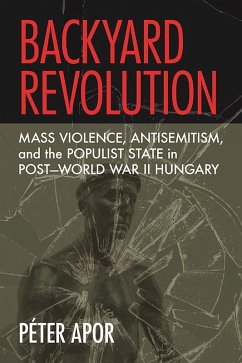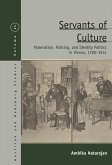Backyard Revolution contributes in-depth sociocultural histories of the popular antisemitic pogroms that shook Hungary in the spring and summer of 1946. Expanding the scope of investigation of serial mass violence toward Jewish communities beyond the cases in Poland suggests that antisemitic violence was general in postwar Central and Eastern Europe and that it spoke to central components of popular notions of society and politics.
Péter Apor gives new impetus to rethink the explanations of collective violence, including antisemitic ones. He considers collective violence as a particular form of political participation and examines post-Holocaust antisemitic violence as one of its perverse ways. Drawing on previously unknown archival sources, Backyard Revolution explores how collective violence produced categories and divisions in society and how these in turn attempted to shape the institutions of the state. It further addresses the political participation of powerless groups and highlights components of everyday life and resistance that engendered power structures and hierarchies. These important theoretical premises concerning the subaltern politics provide a new template for understanding the emergence of communist dictatorships in Central and Eastern Europe.
Setting the genesis of communist dictatorships at the crossroads of popular expectations toward the state, anchored to the culture of the everyday, and elites' attempts to mobilize mass support, Backyard Revolution has implications beyond regional borders and adds to the understanding of growing populist governance worldwide.
Péter Apor gives new impetus to rethink the explanations of collective violence, including antisemitic ones. He considers collective violence as a particular form of political participation and examines post-Holocaust antisemitic violence as one of its perverse ways. Drawing on previously unknown archival sources, Backyard Revolution explores how collective violence produced categories and divisions in society and how these in turn attempted to shape the institutions of the state. It further addresses the political participation of powerless groups and highlights components of everyday life and resistance that engendered power structures and hierarchies. These important theoretical premises concerning the subaltern politics provide a new template for understanding the emergence of communist dictatorships in Central and Eastern Europe.
Setting the genesis of communist dictatorships at the crossroads of popular expectations toward the state, anchored to the culture of the everyday, and elites' attempts to mobilize mass support, Backyard Revolution has implications beyond regional borders and adds to the understanding of growing populist governance worldwide.
Dieser Download kann aus rechtlichen Gründen nur mit Rechnungsadresse in A, D ausgeliefert werden.









